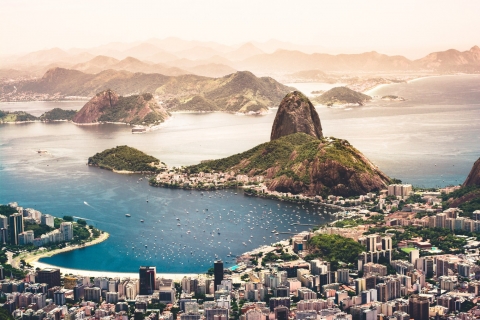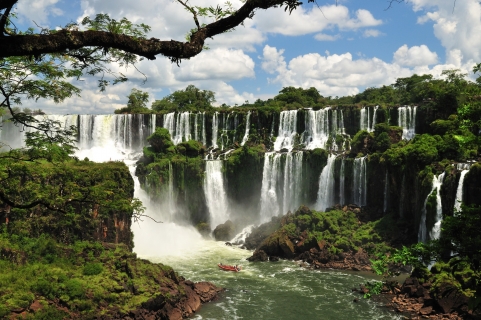Rio de Janeiro Weather and Climate: A Comprehensive Guide
The high season in Rio is summer (December to March), but this season is also the most crowded and most expensive period. Off-season (May-October) is also a good option if you are looking for low hotel prices and don't mind to face the risk of having some days with low temperatures. Rio's winter temperatures stay around the 20°C, dipping occasionally below the 15°C.
Rainy days can be disturbing during a visit to Rio, but they are very unpredictable. They sometimes occur in high season as well.
Average maximum day and minimum night temperature
With minimal seasonal shifts, Rio de Janeiro experiences a constant climate year-round. Average daytime temperatures reach a very warm 32°C in February. In July, the coolest month of the year, temperatures drop to a comfortable 26°C.
At night, you can expect cooler temperatures, with averages dropping to around 18°C during this month. Check out our detailed temperature page for more information.Temperature ranges by month
Precipitation and rainy days
Rio de Janeiro has a notably wet climate with abundant precipitation, recording 1392 mm of rainfall per year. Rio de Janeiro can be quite wet during January, receiving approximately 199 mm of precipitation over 20 rainy days. In contrast August, experiences much drier conditions, with 45 mm of rainfall, spread across 9 rainy days. For more details, please visit our Rio de Janeiro Precipitation page.The mean monthly precipitation over the year, including rain, hail and snow
Sunshine over the year
Rio de Janeiro experiences moderate variation in sunshine hours across the seasons. With 7.1 hours daily sunshine in January, it dips to 4.8 hours in September, offering a balanced mix of sunny and overcast days. Visit our detailed sunshine hours page for more information.Monthly hours of sunshine
Daily hours of sunshine
Average water temperature
The mean water temperature over the year ranges from 21°C in August to 26°C in February.
Water temperature over the year
Average humidity
The relative humidity is high throughout the year in Rio de Janeiro.
The city experiences its highest humidity in March, reaching 80%. In July, the humidity drops to its lowest level at 77%. Explore our detailed page on humidity levels for further details.
Relative humidity over the year
Average wind speed
The mean wind speed over the year ranges from 2 m/s in April, May, June and July to 4 m/s in November.
The mean monthly wind speed over the year (meters per second)
almost clear and no rain partly cloudy and chance of slight rain broken clouds and thunderForecast for Rio de Janeiro
The best time of year to visit Rio de Janeiro in Brazil
Other facts from our historical weather data:Most rainfall (rainy season) is seen in January, February, March, November and December.
February has an average maximum temperature of 32°C and is the warmest month of the year.
The coldest month is July with an average maximum temperature of 26°C.
January tops the wettest month list with 199 mm of rainfall.
August is the driest month with 45 mm of precipitation.
January is the sunniest month with an average of 212 hours of sunshine.
No idea where to travel to this year? We have a tool that recommends destinations based on your ideal conditions. Find out where to go with our weather planner.




